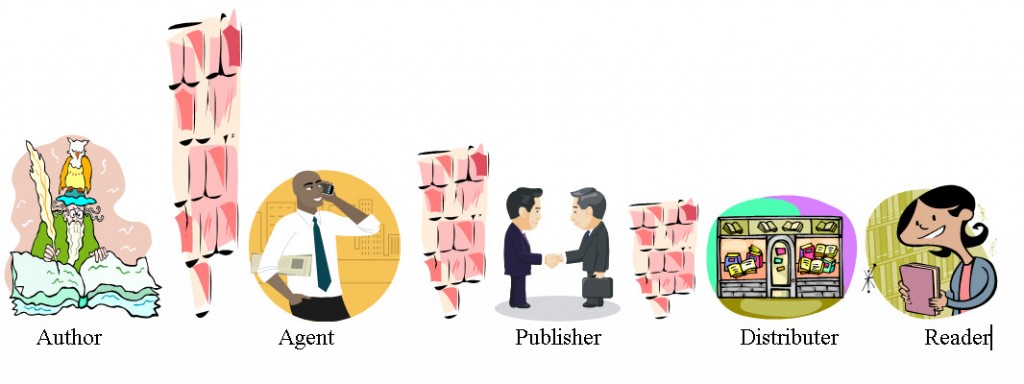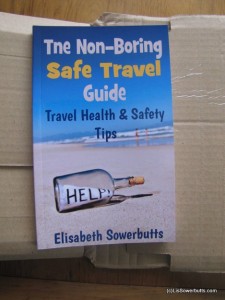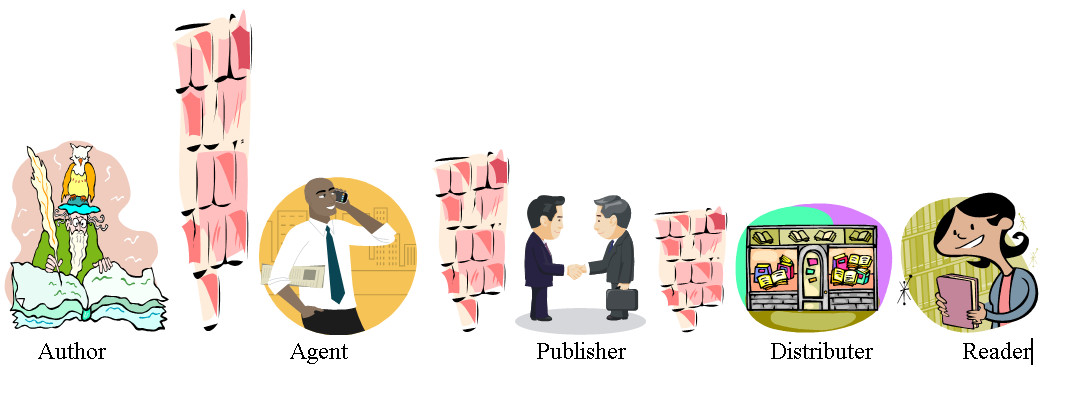This post was going to be balanced answer to the question by a first-time author: should I self-publish?
But balanced is not my style.
This post came from a conversation on a discussion board a first-time author asked how to approach publishers, after having spent over a year writing her book she wanted to know how to get a traditional publishing deal. I replied:
Why? Why do you want to put all that time and energy into the slim chance of actually getting a publishing deal?
Her answer was that she’d tried self-publishing “but it hadn’t worked”. She wanted to sell lots of books to:
- make money for a charity she’s supporting;
- to have the satisfaction of seeing her book in bookshops

The Problem With Traditional Publishing.
Traditional publishing is designed to restrict the number of books published. Publishers are in the business of making money – they absorb all the costs up front: they pay for all editing proofing, cover design, printing costs. (If your “publisher” is asking for a contribution up front, then it’s not a traditional publisher – it’s at best a vanity press and at worst a scam – but that’s a different post). So they only publish books they expect to make money from. Which means you may have written the best poems in modern New Zealand – but you won’t get a publishing deal – because poetry doesn’t sell in New Zealand.
Agents are part of the system to stop publishers been overwhelmed. Big publishers don’t generally accept unsolicited manuscripts. If you get an agent and a book deal – you become a very small part of the publishing process. Pretty much – you’ve done your bit.
Sit back bank the book advance and look forward to the royalty checks.
But the process can take years:
- years to get an agent,
- years to get a publishing contract,
- years to see the book in print.
Your chance of getting those – maybe 5%? Maybe 1% – possibly less. Impossible to know – but it’s rare. Unless you are already famous, or been involved in a high-profile news story.
So after a year or two of effort at best case you’ll have a $1000 advance, a dribble of royalties – which are generally paid in arrears, 6 months later. You’ll get maybe 10% of the book’s cover price. Your book maybe at best on sale for a couple of months.
Yes months – books take up valuable shelf-space – if they are not selling, they won’t be there for long.
Worse case you’ll have wasted a year or more being rejected by agents, or have signed an agent but that agent won’t find a book deal for you. I dunno about you – but don’t find repeated rejections are very good for my mental health. Particularly when I might have to wait months for that “no”.
In contrast as a self-published author I get between 35% and 70% of the cover price, my book stays on sale forever, and I get paid monthly, if I sell enough books to make the minimum payout levels which vary from $10 to $100 depending on outlet and my home country. Oh and the book is available for sale within days of my pushing “publish”. And my books cost considerably less than traditionally published books – because I don’t have the overheads that a publishing house has.
Self-Publishing Works For Print As Well As eBooks
 I was caught out when I received my first print books. They arrived in a box from America and I sat looking at them, stroking them ,with a stupid smile on my face. It was pathetic – fortunately there were no witnesses! They were so cute! They were mine! Yes I’ve published thousands of blog posts and articles all over the web for years – but paper was different!
I was caught out when I received my first print books. They arrived in a box from America and I sat looking at them, stroking them ,with a stupid smile on my face. It was pathetic – fortunately there were no witnesses! They were so cute! They were mine! Yes I’ve published thousands of blog posts and articles all over the web for years – but paper was different!
The first-time author had dreams of seeing her book for sale in bookshops. But you can as easily self-publish a paper book as an eBook, for most books you should probably do both.
Many writers think that printing books cost a lot of money. That’s because it did, as recently as 5 years ago. But thanks to print-on-demand such as Createspace and Lulu the only costs involved in printing books is getting a full cover and formatting the book’s interior, if you DIY these two things the cost is zero. If you are like me and only bought a small-sized stockphoto for the eBook cover it will cost you about $25 for the high-resolution version. There is no print run – you only print books if you want to coo and smile over them, give them away and sell them direct.
Want to see your book in a bookshop? Approach your local shop and find out their policies on stocking self-published books – the smaller shops seem quite open to it – particularly for local authors.
Self-Publishing is Not Just Putting A Book For Sale On Amazon and Smashwords
The writer at the start of this post had self-published , sold only a handful of books, not enough to make the $100 payout on Amazon, and was now looking for other options. It “hadn’t worked” in her words.
And then she said something very important:
Admittedly, I did no marketing whatsoever.
Yes that will work every time. I can prove that – I published my Vacation Packing book in German in March. I’ve done no promotion, I was sorta hoping that it would sell itself – there is very little competition in the German language market. Books sold to date: zero, keine, zitch, nada. I need to promote it. People can’t buy what they don’t know about.
Many writers, and I don’t know if this particular case, seem to hope that all that effort to get a traditional publishing deal, will result in them not actually having to market their book. It may well do – but it probably will result in very little to no royalty checks (i.e. they won’t earn out their advance). New authors who are traditionally published do book tours, they do interviews for media. Yes a publisher’s name will get doors opened in traditional media, which are difficult for a self-publisher. But as a self-publisher I don’t need to do physical book tours, I don’t need to do public speaking, I can promote online without being in the same country as my market. Oh did I mention traditional publishing will rarely see your book published worldwide?
Bottom Line – Why Self-Publishing IS Best Particularly For First Time Authors
Traditional publishing sucks. It dis-empowers the writer. You are not in control of your own career as a writer. The publisher controls how long your book is available, where and at what price. They can also control which other books you publish and where. You are, in effect, a junior employee.
I self-publish to control my writing business – and that’s what it is – a business, not a hobby.

